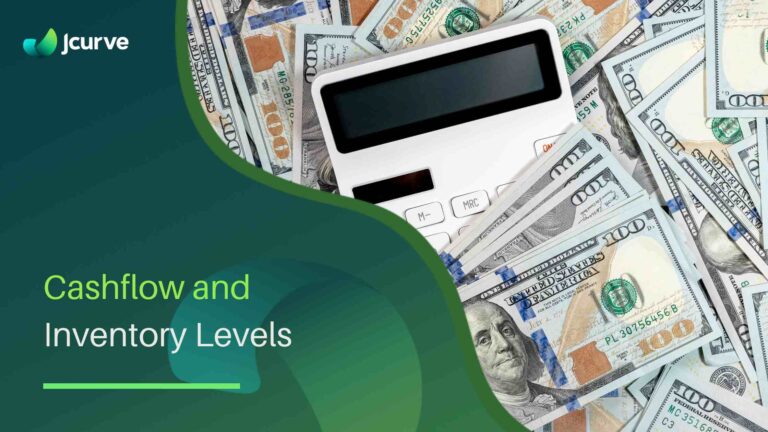Inventory management is the cornerstone of a thriving supply chain in Singapore. NetSuite’s ERP system presents a formidable solution for Inventory Accounting and Valuation, equipping Singaporean businesses with the necessary tools to efficiently manage their stock. This guide will introduce you to NetSuite’s strategy for mastering these critical processes.
Overview of Inventory Accounting in NetSuite
NetSuite’s ERP platform seamlessly blends Inventory Management with financial transactions, guaranteeing precision and instant visibility. Here’s how it functions in the Singapore context:
Inventory Transactions: As items are purchased, sold, or transferred, NetSuite automatically records the corresponding financial transactions.
Real-Time Data: Stock levels are updated instantly, mirroring the current financial value of the inventory.
Audit Trail: Each transaction is meticulously logged, simplifying the tracking of inventory movements and valuations for compliance and reporting, which is vital in Singapore’s strict regulatory environment.
This comprehensive method ensures that your inventory accounting is not just precise but also verifiable at any moment.
For a more in-depth understanding of how these features can influence your profitability, delve into The Powerful Insights Uncovered by Inventory Management Reporting.
NetSuite’s Inventory Valuation Techniques
Selecting the appropriate Inventory Valuation method is essential. NetSuite supports:
FIFO & LIFO: Ideal for Singaporean businesses with perishable goods or those impacted by inflation.
Average Costing: Suitable for commodities where individual costs are not distinct.
Specific Identification: Perfect for high-value items with unique identifiers in the Singapore market.
Configuring these methods in NetSuite involves:
Navigating to Setup > Accounting > Manage Accounting Periods.
Selecting the Inventory Valuation Method.
Applying the method to the relevant items or categories.
Real-Time Inventory Valuation in NetSuite
In Singapore’s fast-paced business landscape, the ability to assess your inventory’s value instantly is invaluable. NetSuite’s real-time inventory valuation offers a transparent view of your stock’s financial status. This immediacy is crucial for accurate financial reporting, ensuring that the value of your inventory is always up-to-date on your balance sheets and income statements, reflecting your company’s financial health accurately. Moreover, this real-time data is the foundation of strategic decision-making, enabling businesses to make informed decisions about stock levels, manage cash flow effectively, and respond quickly to market changes. Understanding this balance is key, as detailed in the discussion on Cash Flow and Inventory Levels.
Cost Management and Inventory Valuation
NetSuite’s cost management capabilities are comprehensive and diverse, meeting various business requirements. Here’s a brief overview of how each costing method can impact your business’s accounting and strategic decisions in Singapore: Costing Method Description, Impact on Financial Reporting and Impact on Decision-Making.
Standard Costing assigns a fixed cost to inventory items, based on standard production costs. Simplifies financial statements by using consistent values. Facilitates stable pricing strategies and margin analysis.
Group Average Costing applies an average cost to a group of similar items. Averages out cost fluctuations over time. Useful for bulk pricing decisions and inventory valuation.
LIFO (Last-In, First-Out) assumes the most recently acquired items are sold first. Reflects current purchase costs, affecting the cost of goods sold. Helps in managing inventory during inflationary periods.
FIFO (First-In, First-Out) assumes the earliest acquired items are sold first. May understate the cost of goods sold if prices are rising. Useful for perishable goods and tracking inventory turnover.
By grasping the subtleties of each, you can better utilise NetSuite’s
features to cater to your specific operational needs in Singapore. For those assessing the financial implications of these methods, a Cost-Benefit Analysis NetSuite Inventory Management Solutions can offer valuable insights.
Advanced Inventory Accounting Features in NetSuite
NetSuite takes inventory management to a new level of precision with its advanced accounting features. The system’s lot and serial tracking capabilities ensure that every item is traceable from receipt to sale, which is crucial for maintaining quality control and managing warranty claims or recalls in Singapore. This detailed tracking is enhanced by NetSuite’s bin management feature, which allows for precise location tracking within warehouses. Whether you’re managing a single warehouse or a complex network of distribution centres across Singapore, NetSuite provides a comprehensive view of your inventory’s exact location down to the bin level. These advanced features not only streamline inventory accounting but also optimise warehouse operations, making NetSuite an indispensable tool for Singaporean businesses aiming to improve their inventory accuracy and operational efficiency.
Reporting, Compliance and Decision Making
NetSuite assists businesses in Singapore to stay compliant with:
GAAP and IFRS: Automated processes align with accounting standards.
Reporting Tools: Real-time inventory reports support strategic decisions.
Sealing the Deal
NetSuite offers a solid framework for Inventory Accounting and Valuation, giving Singaporean businesses the precision and control necessary to effectively manage their inventory. With NetSuite, you gain real-time insights and advanced features that can significantly boost your supply chain operations.
For those in Singapore ready to enhance their inventory management, Jcurve Solutions provides the expertise to maximise your NetSuite investment. Optimise your inventory management with NetSuite by connecting with Jcurve, and begin transforming your business today.










